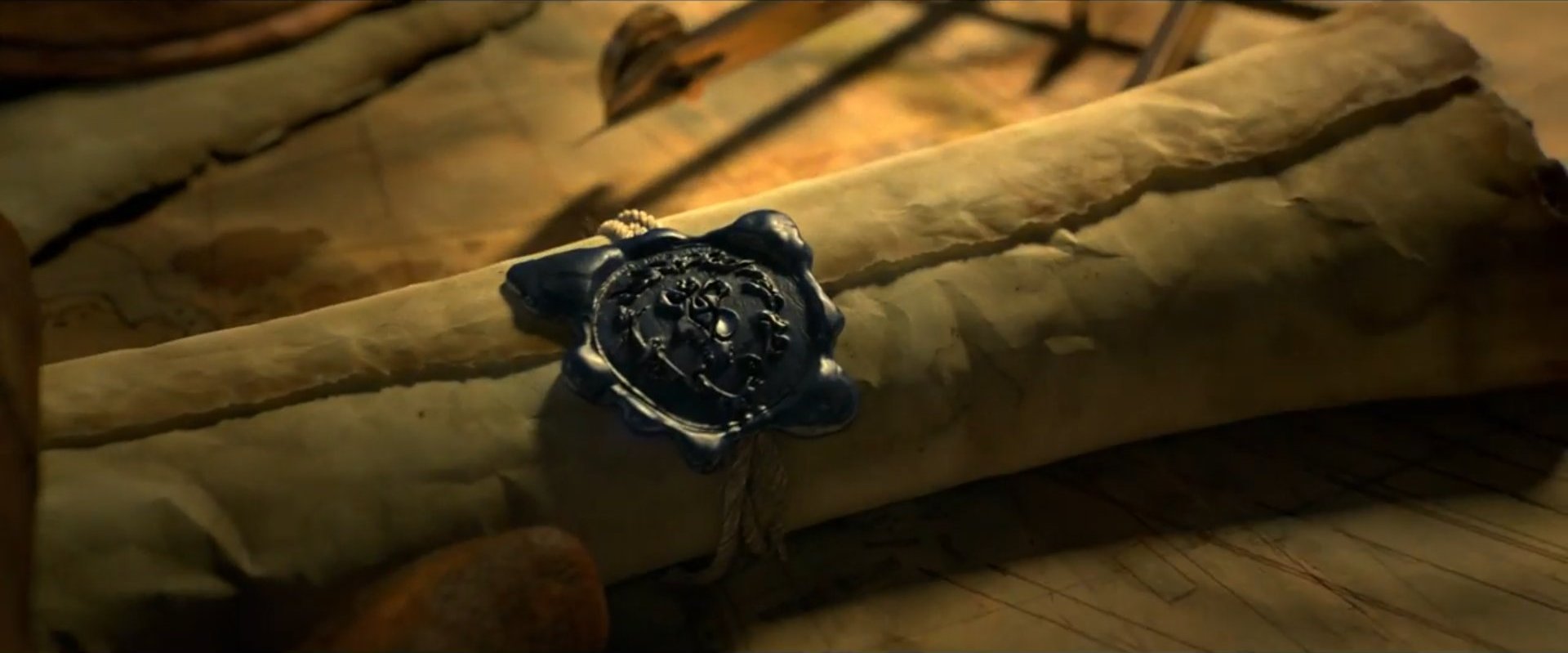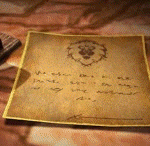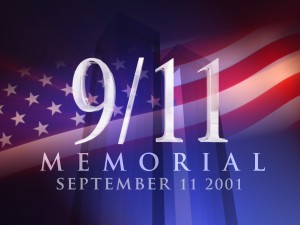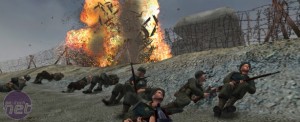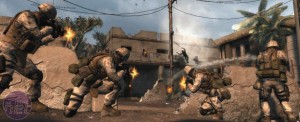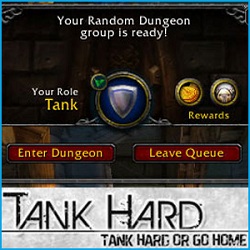Published by Rick Lane in 2011
How 9/11 Influenced Gaming
Where does 9/11 stand in the context of gaming culture? Cultural and artistic mediums fall within the neutral zone on the litmus paper of 9/11 influences, somewhere between international politics and equestrianism. While it might seem like games fall closer to the study of horses in the amount of influence 9/11 has had on them, games have actually been more heavily affected than you might think.
Aside from one or two abortive attempts at creating a game that actually revolved around 9/11 (such as the cancerous merchandising offshoot World Trade Center, based on the equally questionable Oliver Stone film), direct references to 9/11 are notably sparse across the games industry. It’s therefore going to seem strange when I tell you that gaming has one of the most complex relationships with 9/11 of any artistic medium, and that this relationship is also a powerful indicator of where video gaming stands from a cultural perspective.
Perhaps the oddest thing about the relationship games have with 9/11 is that it began with a curious retroactive denial that the twin towers ever existed; a move mirrored in other popular media. A fairly straightforward example of this was Command and Conquer: Red Alert 2. Released in 2000, it originally featured an image of a plane flying toward the twin towers on its back cover – an understandable cut from the marketing plan following the attacks.
This was a simple alteration compared to the changes made to Spider Man 2: Enter Electro, however. Also released in 2000, the final battle of Enter Electro was set atop the World Trade Center. After the attacks the game was pulled from the shelves, and the final stage was re-worked and re-released so that the final stage was no longer referred to directly and less resembled the twin towers.
Whether this retroactive cultural redaction of the World Trade Center from media was the right or wrong way to react to the attacks is a subject which is still debated. Yet it was perhaps more important for games to respond to the heightened sensitivity of the time than other cultural mediums, as the industry quickly came under fire due to the suggested use of Flight Simulator by the perpetrators for training purposes, and the old stick of video-game violence with which the mainstream media so loves to beat it.
In fact, one of the most politically sensitive and high profile titles to be released around this time was Grand Theft Auto III which, unlike Spider Man 2 and Red Alert 2, was still in development when the attacks occurred. On 19 September, 2001 the president of Rockstar Sam Houser issued an email that announced a delay while the company made ‘a full content review of all our titles’ as a result of the attacks. For GTA III, this included ‘certain small contextual references that we were no longer comfortable with’ and ‘a couple of very rare gameplay instances that no longer felt appropriate.’
The actual changes made included the removal of a character from the game, a revolutionary named Darkel who intended to bring economic collapse to Liberty City, and a change to the color scheme of the game’s police vehicles from a light blue (resembling that of the NYPD) to a more general black.
How 9/11 Affected Media
In this sense, gaming was no different from film and television in its response to the heightened sensitivities of the time (a trailer for the 2001 Spider Man movie was also edited due to a shot which featured the World Trade Center). Yet, while films and novels were eventually created that revolved around, referenced or were otherwise inspired by the 9/11 attacks, games continued to avoid mentioning the subject.
Why? Because there’s a presumption both within and outside the games industry that a video-game about 9/11 would be offensive by default.
Part of the problem lies in the semantics of the word ‘game’. It implies an experience which is there primarily to entertain; a series of rules and mechanics designed for the purposes of having fun. Hence the idea of ‘making a game about 9/11’ immediately suggests a product that intends to make 9/11 enjoyable, while films and novels are recognized as being able to aim for other emotions.
This isn’t because the games industry is incapable of making an intelligent and thought-provoking game based around 9/11, it’s just that doing so would require a significant departure from a lot of mainstream gaming conventions.
What games have managed to take from the political aftermath of 9/11, though, is a scenario which has allowed the games industry to stay concurrent with real-world events without fundamentally altering mainstream design philosophies.
This is probably the most obvious influence 9/11 has had on games – the current FPS obsession with the middle-east and a modern warfare setting. Yet it is very much an indirect, generalized influence, and one which took a long time to develop. At the time of the attacks, mainstream shooters had only just discovered World War II as a potential setting: Allied Assault was not released until October 2002, and the original Call of Duty only emerged in November 2003.
In fact, the only major release to feature a middle-eastern setting before 2005 was the Playstation 2 game SOCOM: US Navy Seals. In a sense SOCOM was way ahead of its time, as it was released two months before Allied Assault landed on the beaches of Normandy. The final stages of SOCOM were set in Turkmenistan, with the team chasing down an Islamic terrorist group named the Allah Sadikahu.
Yet the influences the War or Terror had on SOCOM are only applicable in a general sense. Just like 2005’s Battlefield 2 (when the modern combat setting really came to the fore), the primary focus of SOCOM was multiplayer, and the setting was little more than a novel framework for clicking on virtual soldiers’ heads until they fell over.
Indeed, the majority of contemporary FPS games have either concentrated on multiplayer or, as with the Modern Warfare games, used the middle-eastern setting as only a part of the full experience. It’s another defensive tactic; a distancing from the reality of the ongoing middle-eastern conflict. The controversy over the unreleased Six Days in Fallujah was a stark reminder of what happens when mainstream gaming treads too closely to politically sensitive topics. Ultimately, publisher Konami decided to drop the title.
One of the main criticisms that Six Days in Fallujah encountered was that its relatively unconvincing visuals were at odds with the developers claims that they were creating an authentic and intelligent experience that evoked the experience of being a modern day soldier. The media often claims that it’s the ‘realistic’ graphics of games that makes them dangerous. Ironically, though, it’s often games with cruder visuals (such as Manhunt, Postal II and Six Days in Fallujah) that come under fire. It’s the difference between attending a funeral in a smart black suit and turning up in ripped jeans and a t-shirt with a provocative slogan. If the look doesn’t fit the occasion it can be offensive, intentionally or not.
9/11 and the Games Industry
Only very recently has technology reached a point where videogames can truly evoke the horror of being in a city during the event of its destruction, and it’s interesting that one of the first games to capture this atmosphere – Crysis 2 – is set in New York. Even a decade after 9/11, the decision to set Crysis 2 in New York was still seen as a bold and possibly foolish move for Crytek.
Crytek was careful to assure gamers of their sensitive treatment of the topic, however, and this treatment is clear to see in both the general and specific aspects of the game’s design.
For starters, the game is primarily about a race of squid-alien-things that have come to claim the Earth, rather than extremists. More specifically, when the fighting in the city escalates and buildings begin to crumble, they do so in a manner which is very different to the twin towers. Attentive players will note that all the buildings which collapse in Crysis 2 either do so forward or at an angle, and not vertically downward as was the case with the World Trade Center.
Nonetheless, there are moments in the game where the similarities to 9/11 are undeniable, particularly when an alien spacecraft crashes into the back of a skyscraper. And yet it does not offend, and has caused no controversy.
The reason?
The game is extremely well made. The original Crysis was a technological marvel, but the second coming carefully crafted that raw tech into a powerful and yet harrowing depiction of an alien invasion of New York. Any potentially controversial similarities to 9/11 were vastly eclipsed by the game’s creative vision and its focus on a very different type of fiction.
Ultimately, the response to 9/11 by the games industry over the past decade highlights gaming’s standing within society as a mode of social commentary – it doesn’t have one. Of course, gaming is now capable of such commentary where it may not have been ten or even five years ago, but there remains a chance of such an attempt being misconstrued by mainstream media as exploitative or seeking cheap thrills. So, gaming remains silent, and that it does so is worthy of both respect and scrutiny.
There is also one, final reason for gaming’s quiet stance on 9/11; it simply doesn’t need to address the subject. Frankly, films and novels have covered the ground more than sufficiently. What’s more, gaming tends to look forward more than it does back.
The original Deus Ex, with its dark envisioning of a conspiratorial future, covered many of the complexities of the War on Terror before it even happened; even famously lacking the twin towers from its New York skyline. Originally omitted because of a texture problem, Ion Storm then explained away the issue by claiming that the World Trade Center had, like the Statue of Liberty seen in the opening level, been attacked by extremists.
Here in 2011, gaming has other fish to fry. The recent release of Deus Ex: Human Revolution, for example, reiterates gaming’s capacity for forward thinking and intelligent debate. Its deep and erudite discussion on the relationship between advancing technology and what it means to be human will be of far greater relevance to society in the coming decades than what happened in New York ten years ago.
http://www.bit-tech.net/gaming/pc/2011/09/12/how-9-11-affected-games/1
Scott Perrin
Latest posts by Scott Perrin (see all)
- Gamers Trust Multi-Gaming Platforms - July 3, 2017
- Want to join Gamers Trust Incorporated - February 23, 2016
- Gamers Trust Membership Rules - February 23, 2016

